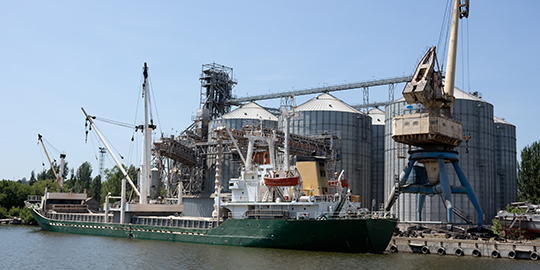
India’s agricultural exports to cross $33 billion by 2023, says study
India’s agricultural exports are expected to cross $300 billion mark by 2023 with the implementation of stable policy, strict rules and awareness about safety standards, a study has said. Factors like policy stabilization, institutional support, awareness about safety norms, implementation of strict regulations and infrastructure development will make the country a major player in global agricultural market, said the latest study conducted by ASSOCHAM. Assessing the agriculture sector’s annual growth rate at 21% in the past one decade, the industry body said that the exports of agro products including tea and coffee have grown from around $5 billion in 2003 to over $39 billion in 2013. However, the country’s agricultural trade is currently challenged by inefficient economics of scale, high level of intermediation, ineffective supply-chain management and lack of consistency in quality. Besides, inadequate storage facilities, poor food safety norms adherence and lack of cost competitiveness due to statutory changes and research for processable grades are major obstacles for India’s agricultural trade. “There is a need to have a long term sustainable policy which attracts more investments in agriculture sector and increases private partnerships in rural and remote areas of the country,” said D S Rawat, National Secretary General of ASSOCHAM. He also suggested the development of Agri Export Zones (AEZs) to encourage the use of innovative technology, improve skills and increase productivity as well as quality standard. “Promotion of agri export zone (AEZ) concept can not only help in achieving the goal of increasing the export earnings, but also provide several benefits like improvement of agricultural output, productivity, quality, reduction in post-harvest losses, up-gradation of technology, farmer’s skills and income, besides it also facilitates development of internationally competitive production base and creation of employment,” Rawat added. To boost the country’s agricultural export earning, the study also suggested the government to engage private players for the development of existing AEZs, integration of various schemes like Mega Food Parks and Cold Storage schemes with AEZs and establishment of dedicated central monitoring authority. “Due emphasis be given on creating Indian brands in agro and food products' category,” it said, adding, “government should incentivize companies undertaking research and development (R&D) and constantly innovating in food and agri sector and help them in exploring export opportunities.” The ASSOCHAM study also carried out state-wise assessment of investment and export through AEZ. States like Kerala, Rajasthan, Jammu and Kashmir, Punjab and Karnataka figured among the top in terms of investment and export.
July 27, 2015 | 6:51 pm IST.






 to success.
to success.